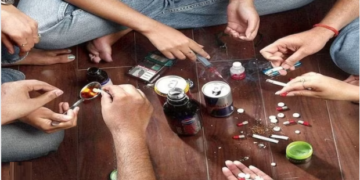The country’s health ministry has rushed high-level teams to nine states and union territories that are seeing an escalation in dengue cases, in order to help them take urgent public health measures to control the vector-borne disease and manage the situation, according to a government statement.
The high-level teams have been deployed to Haryana, Kerala, Punjab, Rajasthan, Tamil Nadu, Uttar Pradesh, Uttarakhand, New Delhi, and Jammu and Kashmir.
“This [move] is in accordance with directions from the union health minister, Dr. Mansukh Mandaviya, during a review meeting on the dengue situation in Delhi on November 1, 2021,” the health ministry said in the statement.
At the review meeting, Mansukh Mandaviya directed the health ministry to extend all help necessary to the states and union territories where dengue infections are on the rise.
A total of 1,16,991 dengue cases have been reported in various states and union territories across the country, according to government data.
A significantly higher number of dengue cases were reported in some states in the month of October, as compared to the number of infections reported during the same month the previous year.
A total of 15 states and union territories have reported their highest number of dengue cases this year. They contributed to 86% of the country’s total number of dengue infections until October 31.
“In view of this, central teams consisting of experts from the national vector-borne disease control programme, the national centre for disease control, and regional offices have been sent to nine states and union territories that are reporting more cases in October compared to September,” the health ministry said in the statement.
The teams are tasked to assist and support the affected states to launch an effective public health response to the escalating crisis.
The teams will have to report on the status of vector control, the availability of kits and medicines, early detection of dengue cases, the availability and use of insecticides, and the status of anti-larval and anti-adult vector control measures.
The experts will also brief the state health authorities about their observations, any gaps that they spot, and possible solutions.























